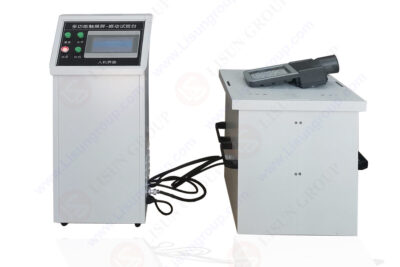
Abstract Dust testers play a pivotal role in evaluating the resistance and durability of products exposed to dusty environments. These tests ensure that electronic components, lighting fixtures, automotive parts, and other products maintain functionality and integrity under adverse conditions. This paper focuses on the LISUN SC-015 Dustproof Testing Machine, examining its design, features, applica...

Introduction The Horizontal Vertical Flame Tester (HVR-LS) is an essential tool for assessing the flammability characteristics of materials used in electrical and electronic products. This article discusses the application of the HVR-LS in evaluating HB & V-level (50W) and 5V-level (500W) materials. These tests are vital for ensuring the safety and compliance of products such as lighting equip...

Introduction The climate test chamber is an advanced tool designed to simulate various climatic conditions, such as heat resistance, cold endurance, dryness resistance, and humidity tolerance. These chambers are crucial for defining the performance of materials and products under different environmental stresses. By testing products in varying climatic conditions, engineers can evaluate whether th...

Introduction In industries ranging from automotive to aerospace and electronics, the ability of components and finished products to withstand vibrations is a critical factor for ensuring long-term performance, safety, and reliability. Vibration test equipment plays a vital role in simulating the dynamic conditions that products experience during their operational life. This article delves into the...

Abstract Electromagnetic Compatibility (EMC) testing is a crucial part of ensuring that electrical and electronic devices perform well in their intended environments without causing or being susceptible to electromagnetic interference. One of the most critical tests in this domain is the lightning surge immunity test, which assesses a device’s resilience to high-energy surges like those induced ...

Introduction In the world of material testing, one of the most critical assessments for understanding the durability of products in harsh environments is salt spray corrosion testing. Salt spray test chambers are widely used to evaluate the resistance of materials and coatings to corrosion caused by exposure to salt-laden environments, typically simulating maritime or coastal conditions. Among the...

Abstract: In modern lighting technology and environmental research, precise light measurement plays an integral role in achieving accuracy and compliance with international standards. One such indispensable tool is the UV spectroradiometer. This article delves into the features, capabilities, and applications of handheld UV spectroradiometers, with a specific focus on the LISUN LMS-6000 Portable C...

Abstract: Electrical safety is a critical concern across various industries, especially when dealing with electronic devices and electrical components. Ensuring that electrical equipment meets safety standards is paramount to preventing accidents and ensuring user safety. One of the essential tests in this domain is the Earth Resistance Test, which is a key part of assessing electrical safety. The...

Abstract: Electromagnetic Interference (EMI) and Electromagnetic Compatibility (EMC) are key factors in ensuring that electronic devices and systems operate without causing or being affected by harmful interference. As electronics become more integrated into everyday life, ensuring compliance with EMI/EMC standards is crucial. This paper explores the importance of EMI/EMC shielding in mitigating ...